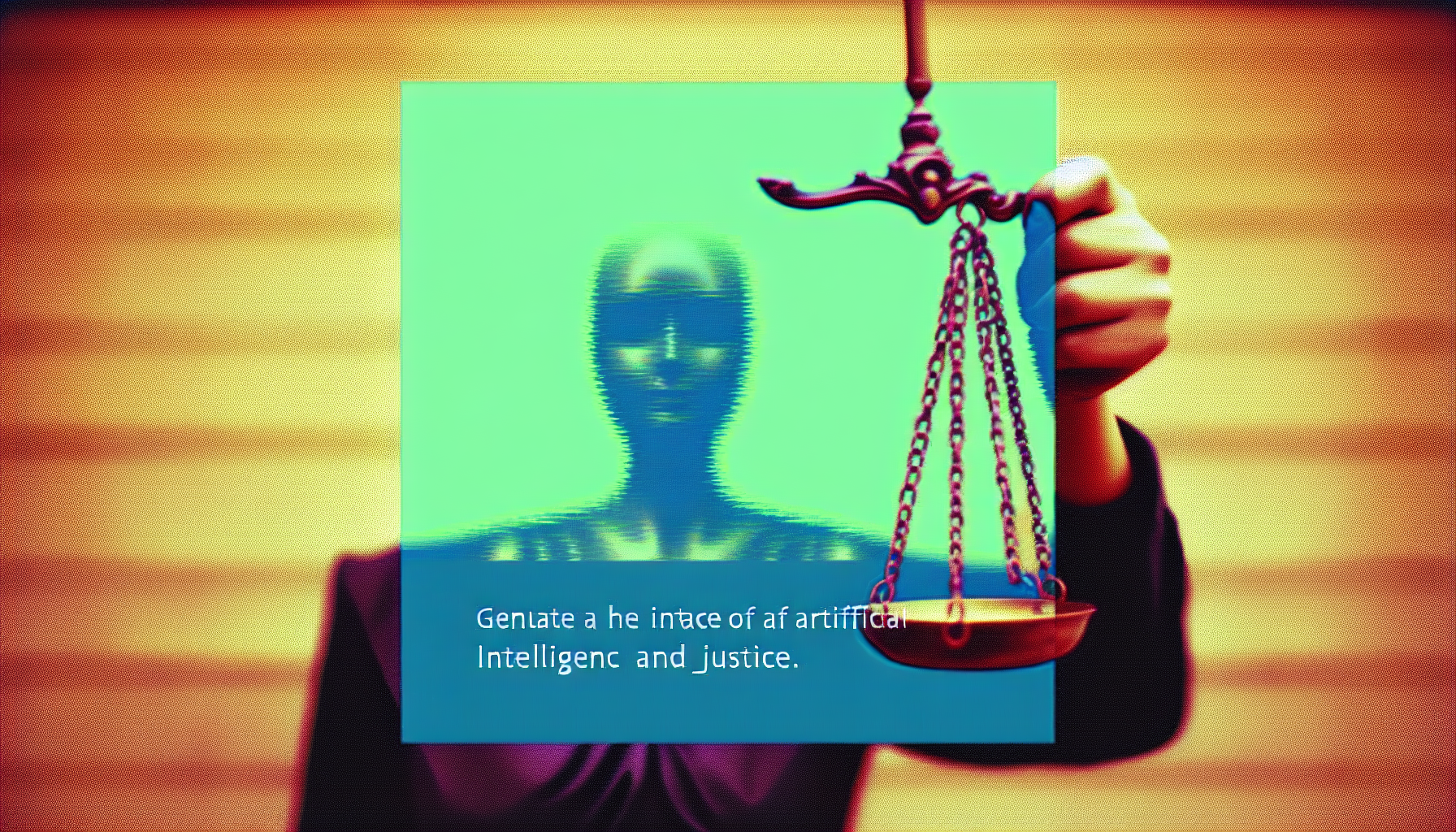Justice is one of humanity’s most cherished concepts. It’s a guiding principle for our laws, our definitions of right and wrong, and how we hold each other accountable. Now enter Artificial Intelligence—our brilliant, silicon-brained offspring. The question arises: Can AI help us better define and achieve justice? What role should it play in this critical aspect of the human condition?
AI’s Impeccable Objectivity (Or Is It?)
AI has an advantage we humans often lack: objectivity. With the right data and algorithms, AI can supposedly make decisions free from emotional bias. Imagine a courtroom where an AI judge evaluates cases based purely on evidence and precedent without being swayed by personal feelings, fatigue, or social pressures. Sounds perfect, right? Well, not so fast.
The catch is that AI’s decisions are only as good as the data it’s trained on. If historical data is biased (and oh boy, do we have a history of biased decisions), then the AI can end up perpetuating those same injustices. We have to be incredibly careful about what data we feed these systems and how we train them. Think of it like feeding a child—if you give them junk food, don’t be surprised when they end up with health issues.
Predictive Policing: A Double-Edged Sword
One of AI’s current uses in justice is predictive policing. Here, algorithms analyze crime data to predict where future crimes might occur. On paper, this could make communities safer by allowing police to allocate resources more effectively. But predictive policing also brings a host of ethical concerns.
For one, there’s the issue of self-fulfilling prophecies. If an AI predicts more crime in a certain area, more police are sent there, leading to more arrests, which then feeds back into the AI as “proof” that its prediction was correct. Essentially, it can magnify existing biases in law enforcement practices, rather than mitigating them. The tool, intended to promote justice, may end up entrenching inequality instead.
AI in Judicial Sentencing: Pros and Cons
AI is increasingly being used to assist judges in determining sentences. Algorithms assess the likelihood of someone reoffending and suggest sentences accordingly. This could, in theory, lead to fairer, more consistent sentencing. Human judges are not immune to bias—racial, socioeconomic, or even influenced by what they ate for breakfast that day (if we are to believe some quirky studies).
However, AI in sentencing has its pitfalls. How do we quantify something as complex as “the likelihood of reoffending”? And if we get it wrong, an algorithmic decision could unjustly affect a person’s life. There’s also the risk of AI becoming a “black box” where even the judges can’t understand how decisions are made, thereby reducing transparency and accountability.
AI and Legal Precedent Analysis
AI shines in analytical tasks, especially when it comes to sorting through massive amounts of data. Legal professionals already use AI to analyze past cases, search for precedents, and even draft legal documents. This isn’t just efficient—it’s downright revolutionary.
By leveraging AI’s ability to tirelessly comb through case law, lawyers can build stronger cases, and judges can make more informed decisions. But it also raises a philosophical conundrum: if AI can do all the heavy lifting, what role does human judgment play? Is the art of lawyering slowly becoming a science?
The Ethical Dilemma: Who Programs the Moral Code?
Here’s where things get even trickier. If we let AI help shape our justice system, who decides the ethical guidelines? AI is not innately moral; it follows the rules and criteria we set for it. Thus, the moral compass of AI is only as accurate as the people programming it.
What if those people have inherent biases or conflicting moral views? Imagine a diverse committee of ethicists, lawyers, and technologists having to agree on what principles an AI should follow. We might find ourselves in debates as heated as any courtroom drama.
The Future: A Partnership, Not a Replacement
Rather than envisioning a future where AI replaces human roles in dispensing justice, perhaps we should aim for a symbiotic relationship. AI can serve as an invaluable tool—augmenting human capabilities, catching biases we might overlook, and ensuring decisions are based on comprehensive data.
However, we should never cede human judgment entirely. Decisions about justice ultimately impact real lives in profound ways that algorithms may never fully comprehend. Integrating AI thoughtfully into the justice system requires rigorous oversight, continuous ethical evaluation, and a willingness to adapt as our understanding of both justice and technology evolves.
Think of AI as a wise advisor—not the king—in our quest for justice. With great power comes great responsibility. If we navigate these waters carefully, we might just find that AI helps us inch closer to a more just society. And if nothing else, it’ll make for some fascinating courtroom dramas.

Leave a Reply